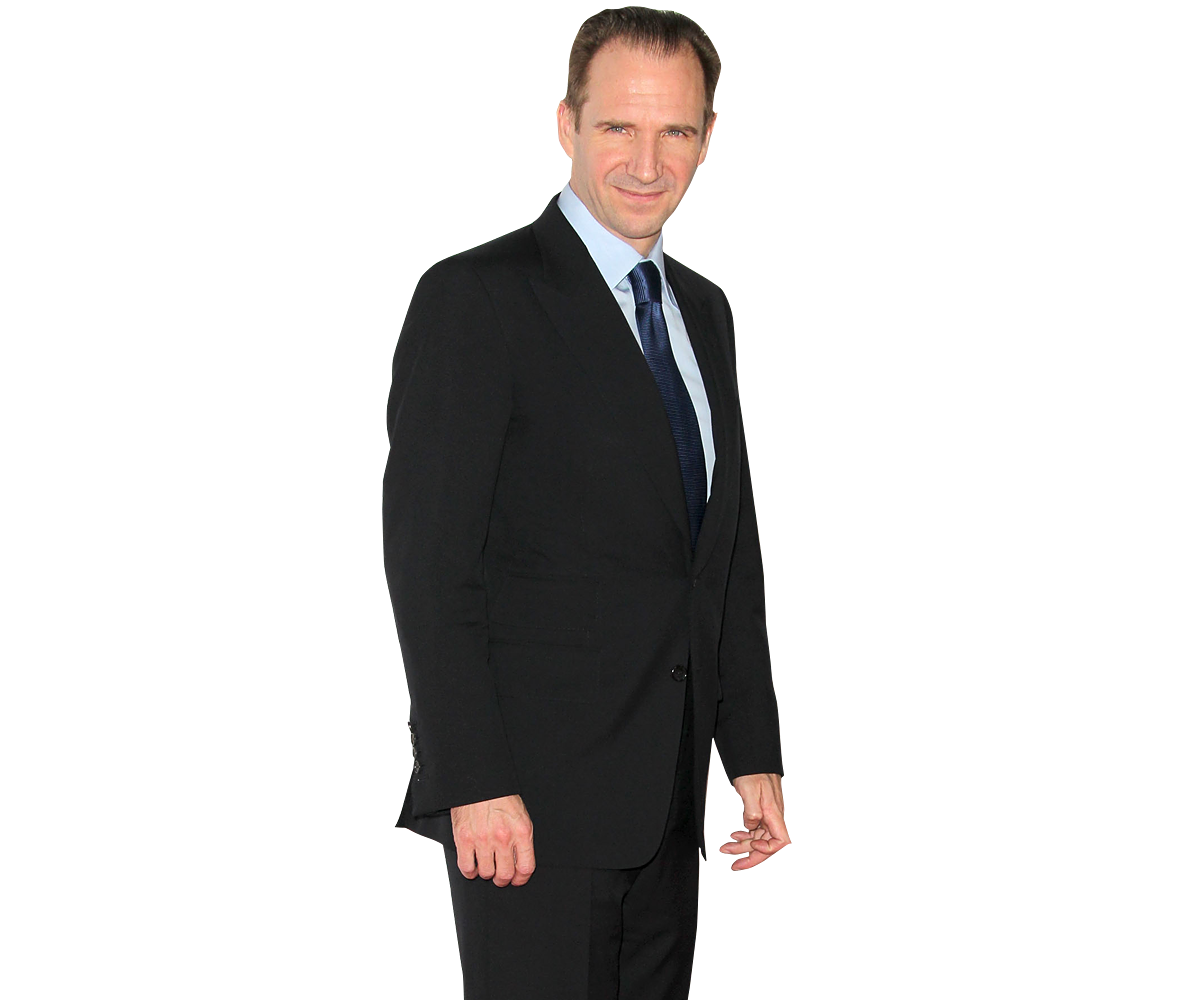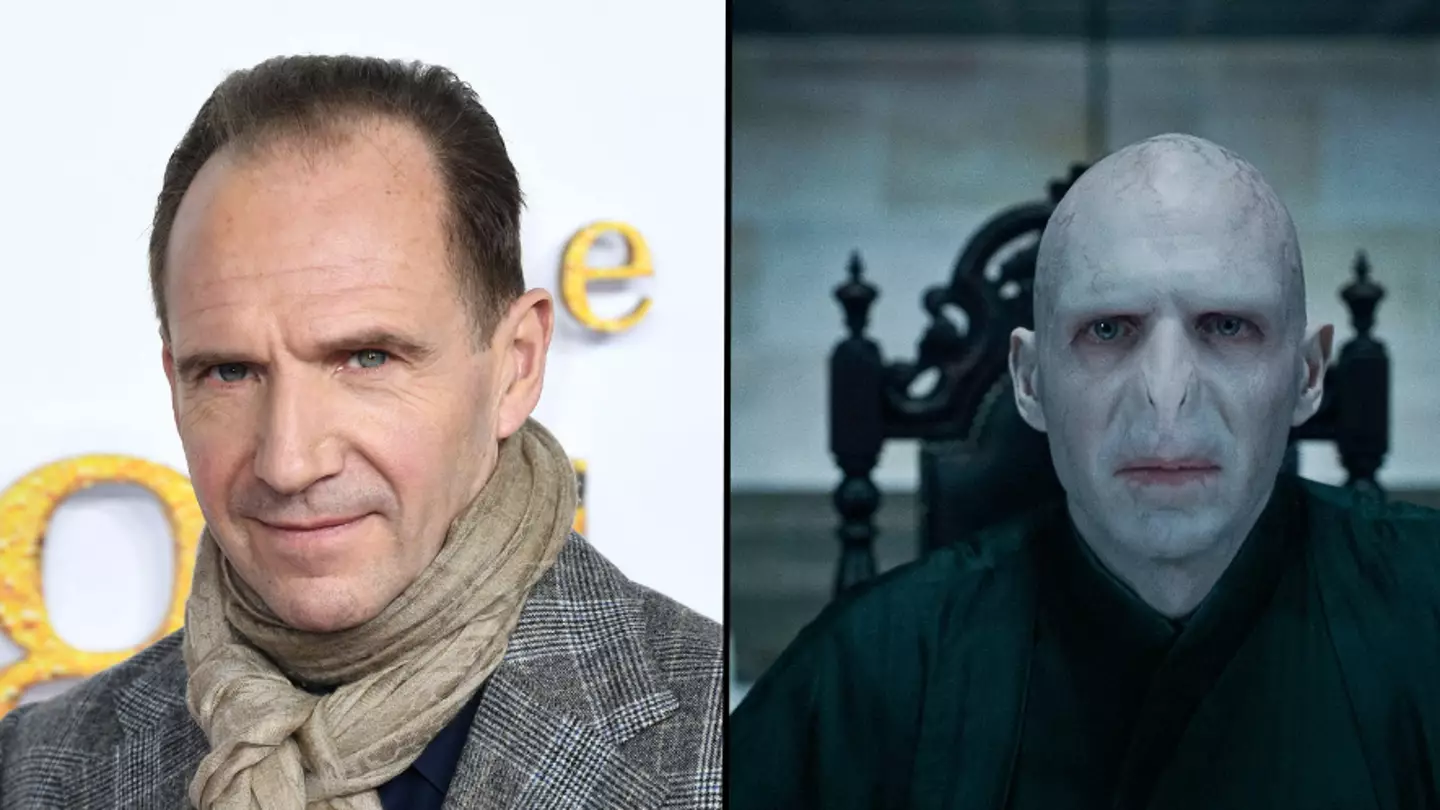Ralph Fiennes is one of the most celebrated actors in the world, known for his versatility and commanding presence on screen. Despite his widespread fame, many people still struggle with the correct pronunciation of his last name. In this article, we will delve into the nuances of Ralph Fiennes name pronunciation, offering clarity and insight into this often-mispronounced surname.
Ralph Fiennes has made a name for himself in Hollywood with iconic performances in films like "Schindler's List," "The English Patient," and "The Grand Budapest Hotel." However, his surname remains a source of confusion for fans and aspiring actors alike. Understanding how to pronounce his name correctly not only shows respect for the actor but also enhances your credibility when discussing his work.
This article aims to provide a detailed exploration of Ralph Fiennes name pronunciation, along with additional insights into his career, background, and influence in the entertainment industry. Whether you're a devoted fan or simply curious about linguistic accuracy, this guide will help you master the correct pronunciation of his surname.
Read also:Besthds The Ultimate Guide To Highdefinition Streaming Devices
Table of Contents
- Biography of Ralph Fiennes
- Origin of the Fiennes Surname
- The Correct Pronunciation of Fiennes
- Common Mistakes in Pronouncing Fiennes
- Language Influence on Pronunciation
- Ralph Fiennes' Famous Roles and Their Impact
- Insights from Interviews and Public Appearances
- Tips for Mastering the Pronunciation
- Cultural Significance of Proper Pronunciation
- Conclusion and Call to Action
Biography of Ralph Fiennes
Ralph Fiennes: Early Life and Career
Ralph Fiennes, born on December 22, 1962, in Suffolk, England, is a celebrated actor known for his exceptional talent and dedication to his craft. His journey in the entertainment industry began with a passion for theater, which eventually led him to the global stage of cinema. Below is a summary of his key personal and professional details:
| Full Name | Ralph Nathaniel Twisleton-Wykeham-Fiennes |
|---|---|
| Date of Birth | December 22, 1962 |
| Place of Birth | Suffolk, England |
| Profession | Actor, Director, Producer |
| Notable Works | "Schindler's List," "The English Patient," "The Grand Budapest Hotel" |
Ralph Fiennes' early exposure to theater and literature laid the foundation for his illustrious career. His commitment to understanding the nuances of language and pronunciation has played a significant role in his acting prowess.
Origin of the Fiennes Surname
The surname Fiennes has a rich history that dates back to the Norman Conquest of England in 1066. Derived from the French word "fief," meaning "fee" or "fiefdom," the name was originally associated with landowners and nobility. Over the centuries, the pronunciation of Fiennes has evolved, influenced by regional dialects and linguistic shifts.
Historical Significance of the Fiennes Name
In medieval England, the Fiennes family held significant influence, with members serving in prominent political and military roles. The name's aristocratic origins contribute to its unique pronunciation, which has been preserved through generations. Understanding the historical context of the Fiennes surname provides valuable insight into its correct articulation.
The Correct Pronunciation of Fiennes
Now, let's address the central question: how do you pronounce Ralph Fiennes' last name? The correct pronunciation is "FEE-anz" (rhymes with "bean"). This pronunciation adheres to the traditional British English standard, reflecting the name's Norman origins.
Breaking Down the Pronunciation
- FEE: The first syllable is pronounced like the word "fee," with a long "e" sound.
- -anz: The second syllable rhymes with "bean," with a soft "z" sound at the end.
Mastering this pronunciation demonstrates an appreciation for linguistic accuracy and cultural sensitivity.
Read also:Cheryl Casone Children Discovering The Life And Legacy Of A Beloved Tv Personality
Common Mistakes in Pronouncing Fiennes
Despite its relatively straightforward pronunciation, many people make errors when saying Ralph Fiennes' last name. Below are some of the most common mistakes:
- Mispronouncing it as "FEE-nis" or "FEE-ness," which are incorrect variations.
- Overemphasizing the second syllable, leading to an unnatural stress pattern.
- Attempting to anglicize the name by applying American English phonetics.
Avoiding these pitfalls is essential for achieving the correct pronunciation.
Language Influence on Pronunciation
The pronunciation of Ralph Fiennes' last name is influenced by both historical and linguistic factors. As a surname of Norman origin, its roots in Old French have shaped its modern articulation. Additionally, regional accents and dialects within the United Kingdom can subtly affect how the name is spoken.
Comparing British and American Pronunciations
While the British pronunciation of "FEE-anz" remains the standard, American speakers may instinctively lean toward a more anglicized version. However, adhering to the original British pronunciation shows respect for the name's heritage and the actor's background.
Ralph Fiennes' Famous Roles and Their Impact
Ralph Fiennes has delivered numerous iconic performances throughout his career, cementing his status as one of the greatest actors of his generation. From his Academy Award-nominated role as Amon Göth in "Schindler's List" to his portrayal of Gustave H. in "The Grand Budapest Hotel," Fiennes consistently demonstrates his ability to inhabit complex characters with depth and authenticity.
Key Performances and Their Relevance
Understanding the significance of Ralph Fiennes' work can enhance your appreciation for his contributions to cinema. His commitment to linguistic precision and character development is evident in every role he undertakes, making him a role model for aspiring actors worldwide.
Insights from Interviews and Public Appearances
In interviews and public appearances, Ralph Fiennes often addresses the topic of his surname's pronunciation. He has expressed amusement at the various mispronunciations he encounters, emphasizing the importance of linguistic accuracy in professional settings. His humility and grace when discussing this subject reflect his professionalism and dedication to his craft.
Quotes from Ralph Fiennes on Pronunciation
During a 2015 interview with The Guardian, Fiennes remarked, "People often ask me how to pronounce my last name, and I always tell them it's 'FEE-anz.' It's a small detail, but getting it right means a lot to me." Such statements underscore the significance of respecting an individual's name and cultural heritage.
Tips for Mastering the Pronunciation
For those seeking to perfect their pronunciation of Ralph Fiennes' last name, here are some practical tips:
- Listen to audio recordings of Fiennes himself saying his name.
- Practice breaking the name into its two syllables: "FEE" and "-anz."
- Pay attention to stress and intonation, ensuring the first syllable receives emphasis.
- Seek feedback from native British English speakers to refine your pronunciation.
With consistent practice and attention to detail, you can confidently pronounce Ralph Fiennes' name correctly in any context.
Cultural Significance of Proper Pronunciation
Properly pronouncing someone's name is a fundamental aspect of cultural respect and sensitivity. In the case of Ralph Fiennes, mastering the correct pronunciation of his surname demonstrates an appreciation for his heritage and contributions to the arts. This attention to detail fosters mutual respect and understanding in both personal and professional interactions.
Why Pronunciation Matters
In a globalized world where cultural exchange is more prevalent than ever, linguistic accuracy plays a crucial role in building bridges between diverse communities. By prioritizing proper pronunciation, we honor the identities and backgrounds of those we engage with, creating a more inclusive and respectful society.
Conclusion and Call to Action
Ralph Fiennes name pronunciation may initially seem challenging, but with the right guidance and practice, anyone can master it. Understanding the historical and linguistic context of the Fiennes surname enhances our appreciation for its significance and the actor's legacy. By respecting and accurately pronouncing his name, we show reverence for his work and cultural heritage.
We encourage readers to share this article with others who may benefit from its insights. Engage with us by leaving comments or questions below, and explore our other articles on topics related to language, culture, and the arts. Together, let's foster a community of linguistic precision and mutual respect.


